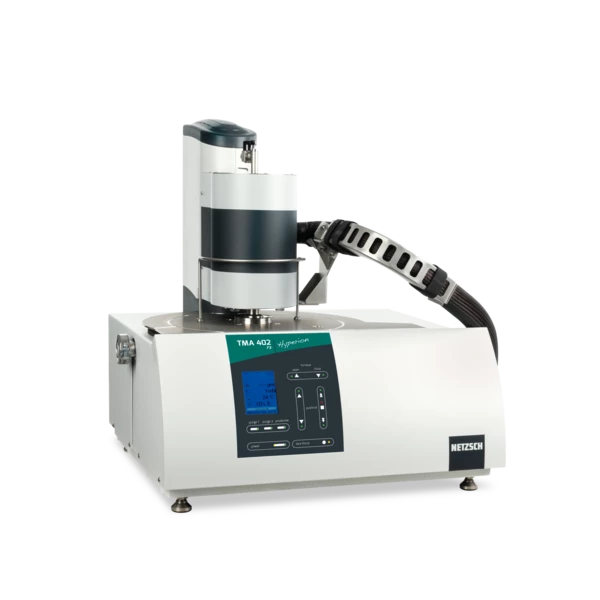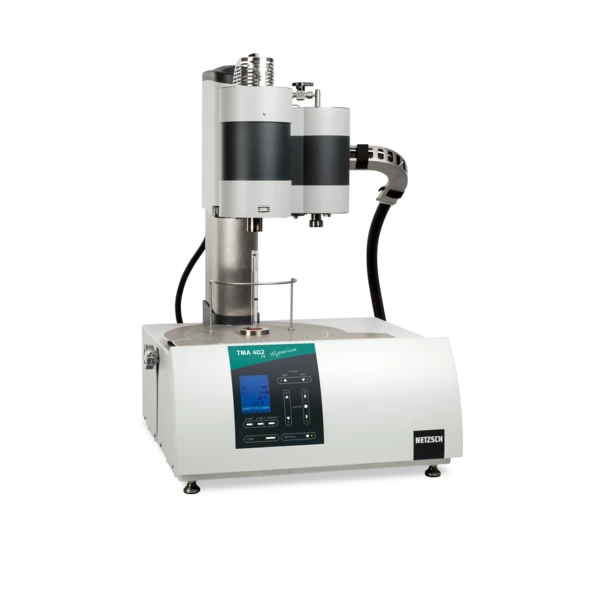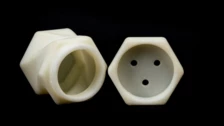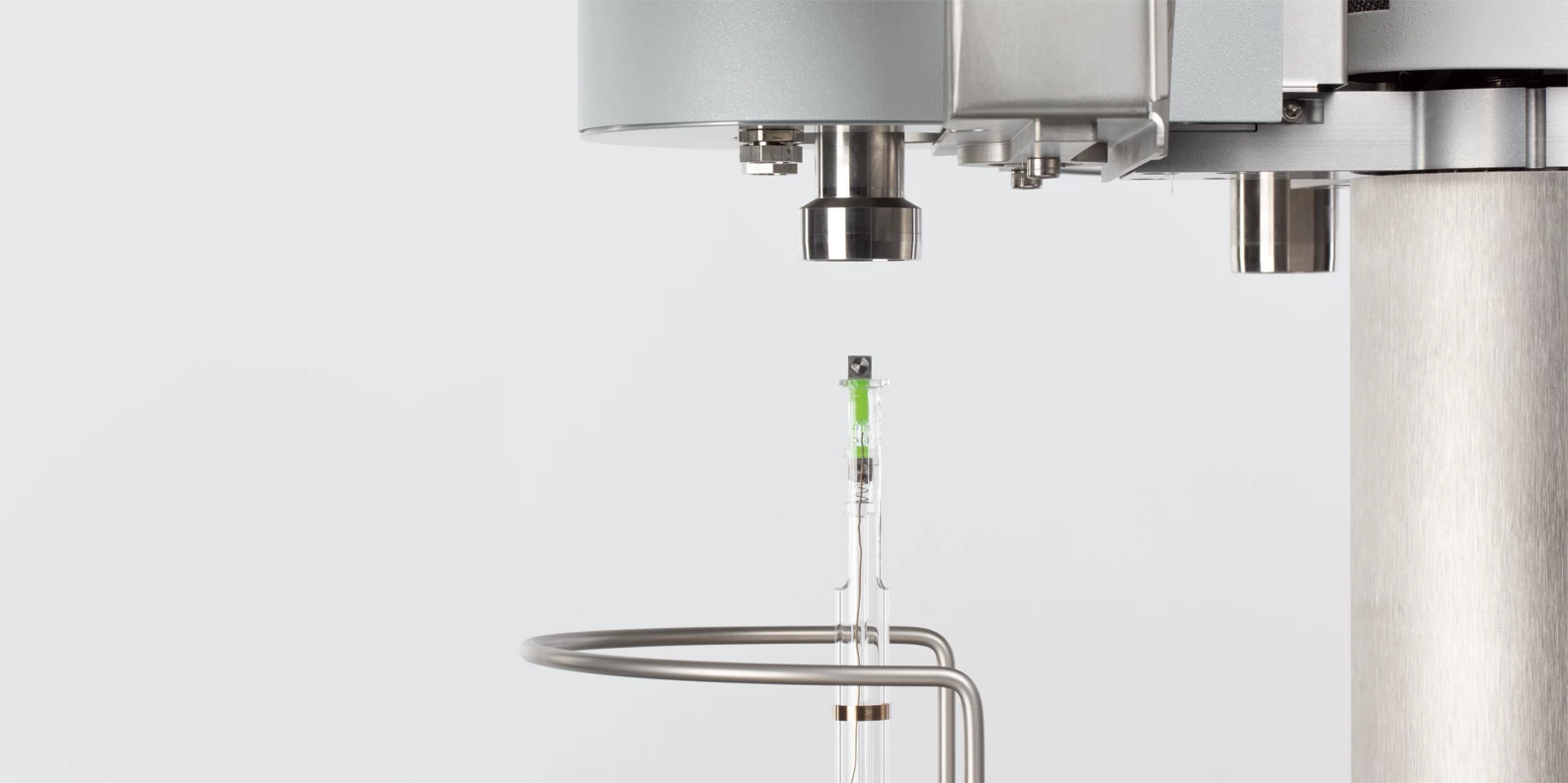
TMA
Analyse Thermo-Mécanique
De nombreux matériaux subissent des changements au niveau de leurs propriétés thermomécaniques durant la chauffe ou le refroidissement. Pour exemple, les changements de phase, les étapes de frittage ou le ramollissement peuvent s’ajouter à l’expansion thermique.
Les analyses TMA peuvent ainsi fournir de précieuses informations concernant la composition, la structure, les conditions de production ou les possibilités d’application pour différents matériaux. La gamme d’applications pour les instruments d’analyse thermomécanique s’étend du contrôle qualité à la R&D. Les domaines classiques incluent les plastiques et les élastomères, les peintures et les colorants, les adhésifs, les films et les fibres, les céramiques, les verres, les métaux, et les matériaux composites.
L’Analyse Thermo-Mécanique (TMA) détermine les variations dimensionnelles de matériaux solides, liquides ou pâteux en fonction de la température et/ou du temps sous une force mécanique définie (DIN 51 005, ASTM E831, ASTM D696, ASTM D3386, ISO 11359 – Parties 1 à 3). C’est très proche de la Dilatométrie (dilatomètre vertical), qui détermine les variations dimensionnelles d’échantillons sous ContrainteLa Contrainte est définie par un niveau de force appliquée sur un échantillon d’une section bien définie. (Contrainte = force/surface). Les échantillons qui possèdent une section rectangulaire ou circulaire peuvent être comprimés ou étirés. Les matériaux élastiques comme les élastomères peuvent être étirés jusqu’à 5 à 10 fois leur longueur initiale.contrainte négligeable (p. ex. DIN 51 045).
TMA 402 F3 Hyperion® Polymer Edition
Thermomechanical Analysis – TMA - Tailor-Made for Low-Temperature Applications
Polymers undergo changes in their thermomechanical properties during heating and cooling. TMA analyses can give insights into molecular orientation and quenching effects during cooling. It allows the design of adhesives and other hybrid joints and quality control of shrink films.
TMA 402 F1 /F3 Hyperion®
Thermomechanical Analyzer - Vertical Dilatometer
Modular Concept with interchangeable furnaces (compatible with other NETZSCH instruments) for easy and cost-effective expansion and retrofitting.Gas flows with up to 4 MFCs, controllable via software with programmable atmosphere change for the analysis of e.g. OxidationOxidation can describe different processes in the context of thermal analysis.Oxidation behavior without manual valve operation
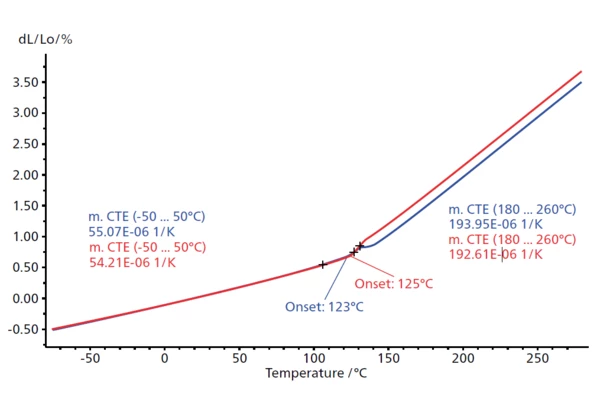
Thermal Expansion
The linear thermal expansion is an important variable for assessing the dimensional behavior of a material in response to a change in temperature.
This plot shows the thermal expansion (dL/L0 in %) of an epoxy resin between -70°C and 270°C. In the first heating (blue curve), the onset of the Température de Transition VitreuseThe glass transition is one of the most important properties of amorphous and semi-crystalline materials, e.g., inorganic glasses, amorphous metals, polymers, pharmaceuticals and food ingredients, etc., and describes the temperature region where the mechanical properties of the materials change from hard and brittle to more soft, deformable or rubbery.glass transition (Tg) occurs at 123°C. In the second heating (red curve), the onset of Tg is slightly shifted, to 125°C. This shift could be due to RelaxationWhen a constant strain is applied to a rubber compound, the force necessary to maintain that strain is not constant but decreases with time; this behavior is known as stress relaxation. The process responsible for stress relaxation can be physical or chemical, and under normal conditions, both will occur at the same time. relaxation effects or post-curing.
Littérature d'application
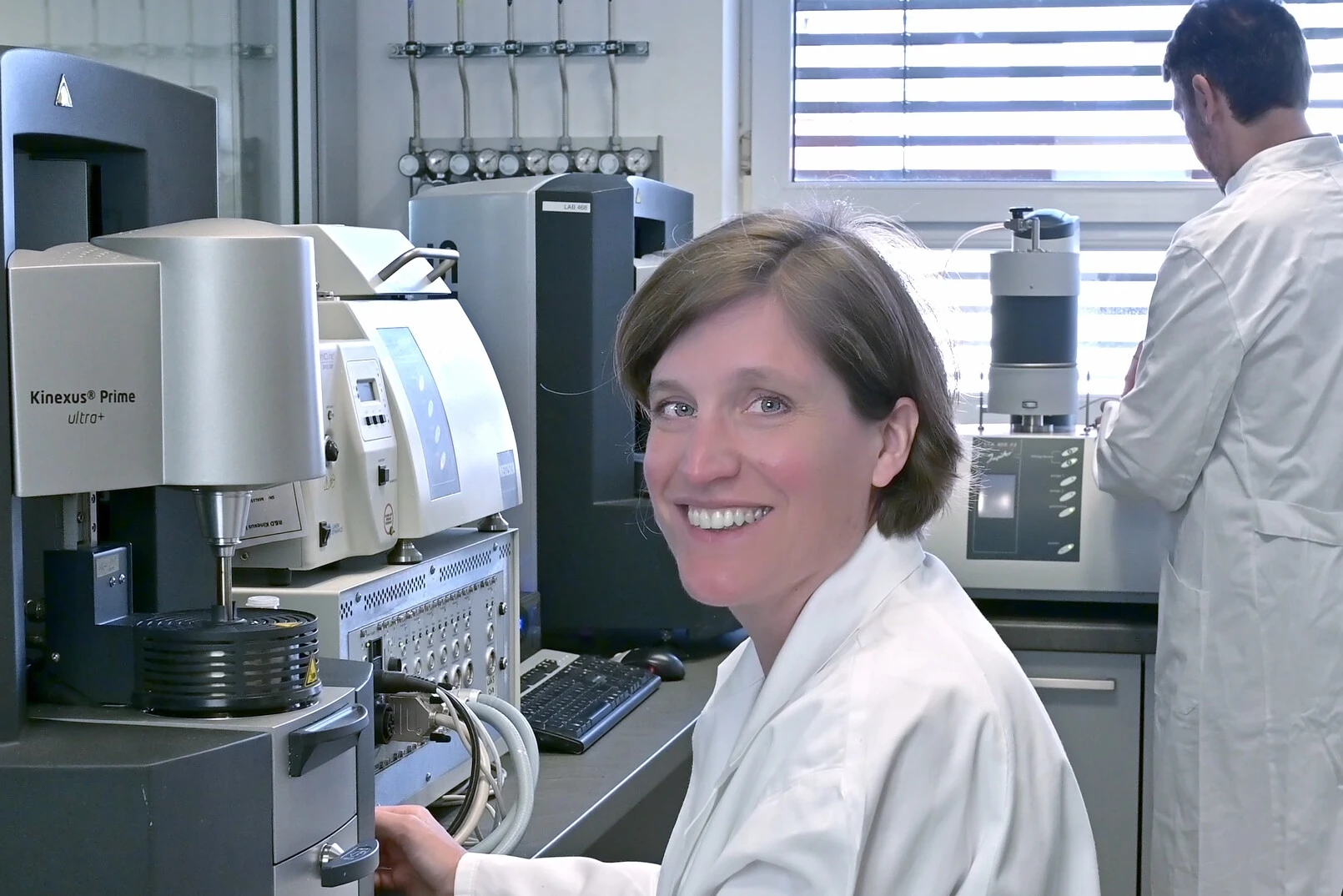
MEASUREMENT WANTED?
Our NETZSCH applications laboratory is providing contract testing services for a wide range of industries and research centers. It is equipped with state-of-the-art testing instruments allowing for a variety of thermal analysis measurements to be carried out.
Consult with the experts in our applications labs to choose the best-suited measuring method for your specific needs.
